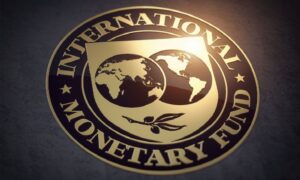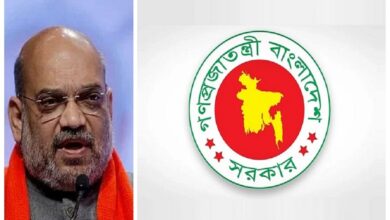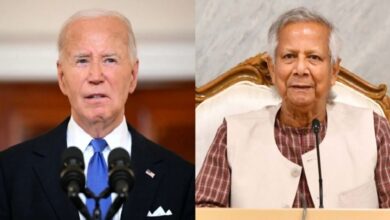IMF report: Bangladesh’s economy risk fears have eased
The apprehension of possible risks to the overall economy of Bangladesh has decreased a lot. Now, to move the country forward, the foreign sector needs to improve considerably. The supply of foreign currency should be increased. Through this, stability should be brought back to the local currency. For this the government has to take some tough steps. In this, the government should reduce the expenditure. The rate of subsidy should also be reduced. Besides, strict measures should be taken to control the rate of inflation. The IMF mission visiting Dhaka has made these recommendations. These data were obtained from a report prepared by the IMF’s Dhaka mission. They have sent the report to various government departments.
Calling the central bank’s move to tighten monetary policy to reduce inflation a timely move, the IMF said such steps should have been taken earlier. At the same time, the recent lifting of restrictions on import LC margins by the central bank is also seen as positive. Earlier, during the previous government, the IMF had recommended to waive the LC margin on imports.
Waiver of LC margin will increase competition in the market, the company said. Through this, the competition between banks will increase to increase dollar income. As a result they will try to collect dollars. As a result the import situation will be normal. Because a large part of Bangladesh’s economy depends on imports. Curbing imports will make economic recovery difficult.
Even during the last government’s tenure, the IMF was pressing for monetary policy to be tightened to reduce the rate of inflation. But the government did not. As a result, the rate of inflation did not decrease. Now the new governor has announced that the monetary policy will be tightened to reduce the inflation rate. The IMF considers this positive. The central bank has already raised the policy interest rate twice. As a result, competition among banks has also increased. They are offering higher interest on deposits. Deposits in many banks have started to increase. As a result, the liquidity crisis of the banks has also started to reduce. In the long run this policy will bring benefits to the banking sector.
The IMF said the government should cut spending. It will be possible to reduce the debt burden of the government to some extent by reducing the special unnecessary expenditure. It will reduce the interest pressure of the government.
As a result of taking these steps, the fear of risk to the economy of Bangladesh is decreasing. Earlier risk levels were higher. The IMF also believes that Bangladesh is now on the right track in economic recovery.
Meanwhile, the IMF’s annual report released on Thursday also highlighted Bangladesh’s debt repayment capacity. The financial status of all member countries including Bangladesh is presented in the report.
According to the report, the IMF counts their year from March to April. According to this, Bangladesh received a new loan of 115 million 80 million dollars from the IMF last year. Bangladesh got these loans against various instruments. In contrast, Bangladesh has repaid 272.2 million dollars of earlier loans during the same period.
According to sources, an IMF loan program of $4.7 billion is ongoing. It has been proposed from Bangladesh to increase its amount by another 3 billion dollars. The IMF agreed. The ongoing mission is also discussing this issue.





